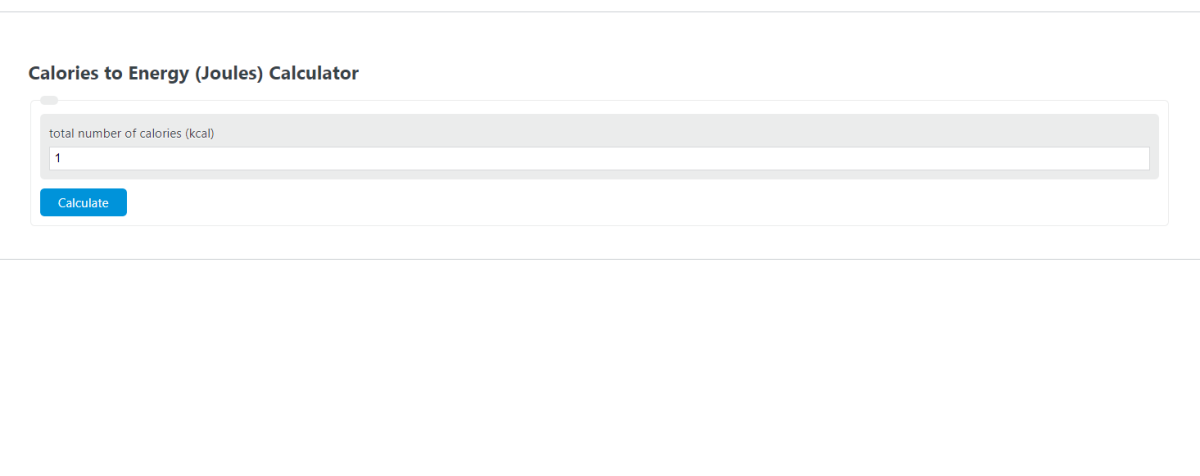Enter the total number of calories (kcal) into the calculator to determine the Joules from Calories.
- All Energy Calculators
- Minimum Calories Calculator
- REE/RDEE (Resting-Energy-Expenditure) Calculator
- EER Calculator (Estimated Energy Requirement Calculator)
- Protein to Energy Calculator
- Cycling Energy Calculator
- Carbs to Energy Calculator
Joules from Calories Formula
The following equation is used to calculate the Joules from Calories.
E(J) = E(kcal) * 4184
Variables:
- Where E(J) is the Joules from Calories (Joules)
- E(kcal) is the total number of calories (kcal)
To calculate joules from calories, multiply the kilo-calories by 4184.
How to Calculate Joules from Calories?
The following two example problems outline the steps and information needed in order to calculate the Joules from Calories.
Example Problem #1:
- First, determine the total number of calories (kcal). In this example, the total number of calories (kcal) is measured to be 4.
- Finally, calculate the Joules from Calories using the formula above:
E(J) = E(kcal) * 4184
Inserting the values from above and solving the equation with the imputed values gives:
E(J) = 4 * 4184 = 16736 (Joules)
FAQ
What is the difference between calories and kilocalories?
In dietary contexts, the term “calorie” often refers to a kilocalorie (kcal), which is the amount of energy needed to raise the temperature of 1 kilogram of water by 1 degree Celsius. Technically, 1 calorie (cal) is the energy needed to raise the temperature of 1 gram of water by 1 degree Celsius, making 1 kcal equal to 1000 cal.
How can knowing the conversion from calories to Joules be useful?
Understanding the conversion from calories to Joules can be useful in various scientific and engineering fields where energy measurements are required in different units. For example, it can help in comparing energy content in food (usually measured in calories or kilocalories) with energy expenditures in physical activities or mechanical work, which might be measured in Joules.
Are there any other common energy units used besides calories and Joules?
Yes, besides calories and Joules, energy can also be measured in other units such as watt-hours (Wh), British thermal units (BTU), and ergs, depending on the context. For example, electrical energy is often measured in kilowatt-hours (kWh), while heat energy might be measured in BTUs in some engineering and air conditioning contexts.
